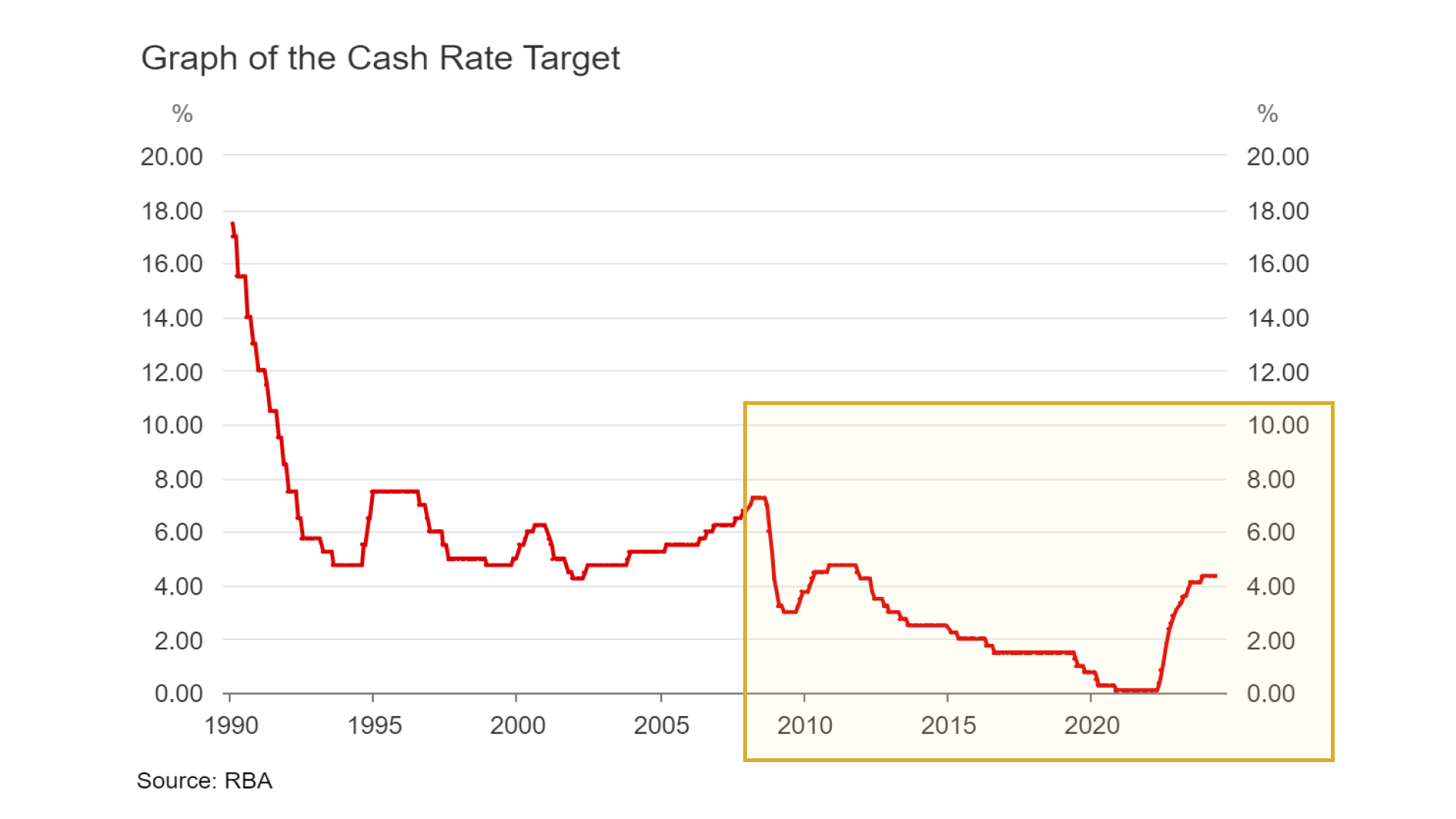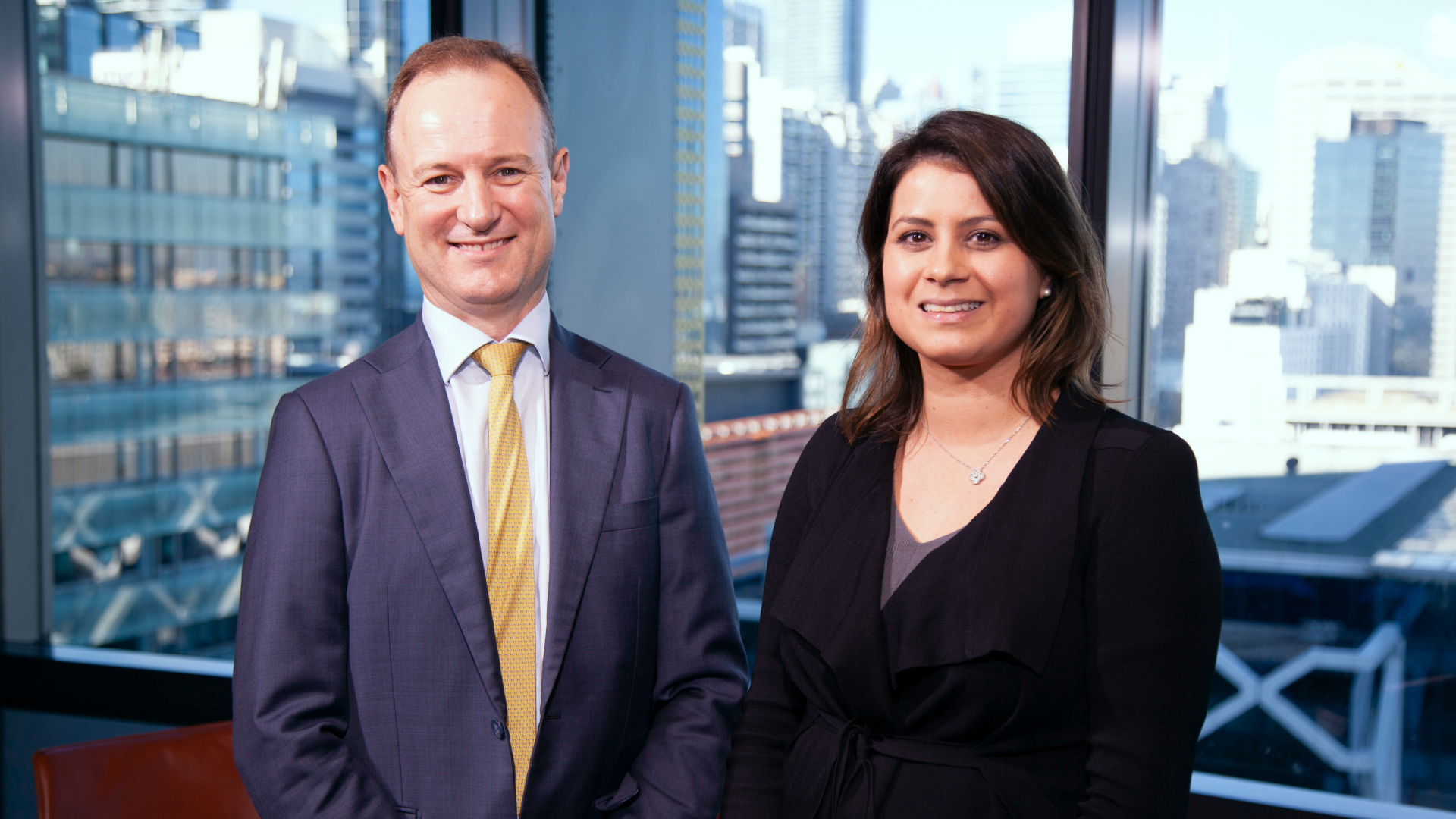Cashing in on the best returns since 2011
You have to go back 13 years to find a time when interest rates in Australia were at similar levels to those of today. After years of miserly returns on low-risk investments, it's easy to understand why investors are being lured back to the safe haven of term deposits and fixed income.
As part of Livewire's Income Series 2024, I hosted a discussion with UBS Global Wealth Management's Stephen Cabot and Wilsons Advisory's Alexandra Kalceff to understand how they are utilising income-generating assets in their client portfolios.
UBS recently published its 2024 Global Family Office report, which delves into the portfolio allocations of 320 family offices overseeing $4 billion in assets. According to Stephen Cabot, a key insight is that significant amounts of capital are flowing from equities into fixed income.
"They have significantly shifted back to fixed income, and that's what we're also seeing from our client base. They had 12% at the end of last year and that's jumped to 16%. So a reasonably significant shift," he says.
A similar theme is playing out at local wealth management firm Wilsons Advisory where fixed income is the asset class dominating conversations, according to Alexandra Kalceff.
"Fixed income is the asset class we've been speaking about mostly, and in addition to public markets, we're now talking about fixed income in private markets," she explains.
A key message from both Cabot and Kalceff is that exposure to equities remains key. However, on a risk-return basis, the case for fixed income is compelling. Quite simply, you can earn similar returns without the same amount of risk.

Take it while it is on offer
Asset allocations are being adjusted at Wilsons Advisory and UBS to take advantage of the attractive risk-return scenario, with both firms increasing their exposure to fixed income.
For a balanced investor, Kalceff says the typical portfolio would have a 30% total allocation to fixed income, with a mix of public and private assets. The remainder of the portfolio is invested in growth assets comprising domestic and global equities and growth alternatives.
Cabot says the UBS Global Wealth Management approach tends to be more conservative and runs an overweight allocation to fixed income of 40%, up from 35%. The remainder is invested in a mix of 50% equities and alternatives to provide some diversification.
"Our preference is for fixed income over equities - that's on a risk-return basis. The way things are stacked at the moment allows us to generate some pretty stable returns from fixed income. Single digit returns, and we probably expect the same from equities; it's just that risk-return trade-off means bonds look a safer place," he says.

So should you go all in on income?
That's completely up to you. However, my two guests shared the following pointers for considering how much you allocate to income.
The first is about the stage of life, and the later in life you are, a larger allocation to fixed income is favoured. Fixed income returns are stable, predictable, and consistent and suit those who do not want to risk an unexpected drawdown.
Be cautious of abnormally high headline yields as they can often be a good indicator of risk. Kalceff points to stocks with high trailing dividend yields as the classic yield trap.
Cabot and Kalceff believe a total return mindset to investing is the best approach. The growth component means that you can continue to increase your wealth, and it also plays a vital role in staying ahead of inflation, which at more than 3% is eating up a good chunk of your returns.
4 topics


